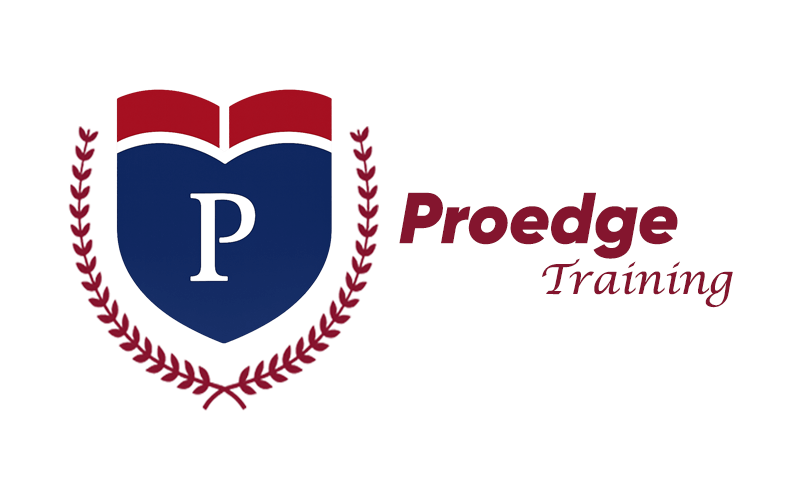
How to Become an Interpreter: Step-by-Step Guide
Becoming an interpreter requires mastering languages and communication skills. It involves translating spoken words between people who speak different languages. This career is ideal for those who love languages and connecting cultures. Interpreters play a crucial role in global communication. They bridge language gaps in diverse settings, from hospitals to international conferences. The demand for interpreters is growing as the world becomes more interconnected. It’s a challenging yet rewarding profession that offers varied opportunities. You could work in legal, medical, or diplomatic fields. To start, strong language skills are essential. Then, specialized training and practice refine your abilities. Patience and cultural awareness are key traits for success. If you aspire to connect people through language, interpreting could be your future path. Ready to explore this exciting career? Let’s dive into the steps to become an interpreter.
Skills Required
Becoming an interpreter requires a unique set of skills. These skills are crucial for understanding and conveying messages between different languages. An interpreter must excel in several areas to perform effectively. Two critical skills are language proficiency and cultural awareness. These skills ensure accurate and meaningful communication. Below, we delve into these essential skills and their importance in the field of interpretation.Language Proficiency
Language proficiency is the foundation of any interpretation work. Interpreters must have excellent command over languages they work with. This includes reading, writing, and speaking abilities. Bilingualism is a must, but proficiency goes beyond just speaking two languages.- Consecutive Interpretation: This requires listening to a speaker and then relaying the message in another language.
- Simultaneous Interpretation: This involves translating spoken words in real-time.
| Aspect | Requirement |
|---|---|
| Reading | Comprehend written text accurately. |
| Writing | Express thoughts clearly in another language. |
| Speaking | Articulate words clearly and accurately. |
Cultural Awareness
Cultural awareness is as important as language skills. Understanding a culture helps in conveying messages accurately. Interpreters must grasp societal norms, traditions, and values. This knowledge enables effective Cross-Cultural Communication. Every culture has unique expressions and customs. Misinterpretation can occur without cultural sensitivity. Interpreters should learn about:- Gestures and body language
- Social customs and etiquette
- Religious beliefs and practices
Education Pathways
Embarking on a journey to become an interpreter requires dedication and a clear educational path. Understanding the options available for education is crucial. Interpreters convert spoken language from one to another, helping people communicate despite language barriers. Education pathways provide the foundation needed to develop these essential skills. This section explores degree programs and certification courses that prepare aspiring interpreters for a successful career.Degree Programs
Pursuing a degree is a common pathway for aspiring interpreters. Degree programs offer a structured curriculum that covers a range of topics essential for interpretation. These programs often include courses in Bilingual Communication, Translation Studies, and Interpreting Techniques. Key components of a degree program may include:- Language Proficiency: Courses that enhance fluency in multiple languages.
- Simultaneous and Consecutive Interpreting: Training in different interpreting modes.
- Cultural Studies: Understanding cultural nuances and their impact on language.
| Program Name | Duration | Focus Area |
|---|---|---|
| Bachelor in Translation and Interpreting | 4 years | Simultaneous Interpreting |
| Master in Conference Interpreting | 2 years | Consecutive Interpreting |
Certification Courses
Certification courses offer a flexible option for those seeking to become certified interpreters. These courses focus on specific skills and often require less time than degree programs. They are ideal for those who already have a strong foundation in a language. Some popular certification options include:- Language Certification: Validates language proficiency and interpreting ability.
- Professional Development For Interpreters: Courses that keep skills up-to-date.
- Interpreter Workshops: Short-term training in specialized fields.
Types Of Interpreting
Interpreting is a vital skill in today’s globalized world. It bridges communication gaps between individuals who speak different languages. There are various types of interpreting, each serving unique needs and settings. Understanding these types can help aspiring interpreters choose the right path. Active Listening and Translation Skills are essential across all types. Bilingualism and Language Proficiency are crucial for success. Let’s explore the main types of interpreting.Simultaneous Interpreting
Simultaneous interpreting involves translating spoken words in real-time. It is commonly used in conferences, diplomatic meetings, and live broadcasts. This type requires Language Fluency and quick thinking. The interpreter listens to the speaker through headphones while speaking the translation into a microphone.- Active Listening is crucial for accuracy.
- Requires Professional Certification in many settings.
- Often involves working with specific Language Pairs.
Consecutive Interpreting
Consecutive interpreting is different. It involves the speaker pausing to allow the interpreter to convey the message. This is common in medical, legal, and informal settings. Here, interpreters have more time to process information.- Relies heavily on Language Proficiency.
- Requires strong Translation Skills.
- Beneficial in settings where accuracy is more important than speed.
Building Experience
Becoming an interpreter is more than mastering languages; it’s about building experience. Experience is the cornerstone of interpreting expertise. It enhances your bilingual skills, refines your translation techniques, and deepens your understanding of cultural competency. Various pathways, such as internships and volunteering, offer hands-on learning. They provide the necessary exposure to real-world interpreting services. This foundation is essential for excelling in simultaneous and consecutive interpreting.Internships
Internships are invaluable for aspiring interpreters. They offer a structured environment to practice language proficiency. Interns engage in professional development activities, gaining insights into the interpreting process. Here are some benefits:- Practical Experience: Internships allow you to apply classroom knowledge in real settings.
- Networking Opportunities: Connect with professionals who can guide your career.
- Skill Enhancement: Refine your translation techniques and interpreting skills.
| Venue Type | Opportunities |
|---|---|
| Language Schools | Workshops, Classroom Interpreting |
| International Organizations | Global Meetings, Cultural Exchange Programs |
| Government Agencies | Policy Meetings, Public Service Interpretation |
Volunteering Opportunities
Volunteering is a flexible way to gain interpreting experience. It often involves community-based projects where you can hone your bilingual skills. Volunteering enhances your ability to perform consecutive interpreting. It helps in developing cultural competency through real-world interactions. Consider these volunteering opportunities:- Community Centers: Assist non-native speakers in understanding local services.
- Hospitals: Volunteer as an interpreter for patients needing language support.
- Non-Profit Organizations: Participate in international aid programs.
Networking Strategies
Building a career as an interpreter requires more than just mastering languages. Networking plays a crucial role in opening doors to opportunities, enhancing your interpretation skills, and staying updated in the field. Effective networking strategies can connect you with other professionals, provide access to resources, and help you grow both personally and professionally. Understanding how to network effectively is key to success in this dynamic field.Professional Associations
Joining professional associations is a powerful way to expand your network as an interpreter. These organizations offer a wealth of resources and connections that can boost your career. By becoming a member, you can enjoy several benefits:- Access to Certification Programs: Gain guidance and support through certification processes.
- Workshops and Conferences: Attend events to improve your simultaneous and consecutive interpreting skills.
- Networking Events: Meet experienced interpreters and potential clients.
| Benefit | Description |
|---|---|
| Certification Programs | Guidance to achieve professional qualifications. |
| Professional Development | Workshops and seminars for skill enhancement. |
| Networking Opportunities | Meet and connect with industry experts. |
Online Communities
In the digital age, online communities offer a flexible way for freelance interpreters to network. These platforms provide a space to share knowledge, find support, and discuss industry trends. Being part of online forums or social media groups can help you stay informed about new interpretation techniques and tools. Here are some advantages of joining online communities:- Language Pairs Discussion: Engage in conversations about various language pairs.
- Resource Sharing: Access materials to boost your interpreter training.
- Job Opportunities: Discover freelance projects and job openings.

Job Search Tips
Embarking on a career as an interpreter is an exciting journey. Mastering bilingual communication and honing translation skills are essential. Navigating the job market is crucial. Effective resume crafting and interview preparation can significantly impact your success. These job search tips will guide you towards meaningful job opportunities. Let’s explore how to present your skills and prepare for interviews in this vibrant field.Resume Crafting
Your resume is your first impression. It should highlight your language proficiency and translation skills. Focus on your ability to communicate effectively in multiple languages. Here are some key elements to include:- Clear Objective: State your career goal. Mention your interest in freelance interpreting or specific language pairs.
- Relevant Experience: List any interpreting work you’ve done. Include volunteer or freelance projects.
- Education and Certification: Detail any certification programs or professional development courses. Highlight your cultural competence and interpreting techniques.
- Language Skills: Clearly list your language pairs and proficiency levels.
| Language Pair | Proficiency Level |
|---|---|
| English – Spanish | Advanced |
| French – German | Intermediate |
Interview Preparation
Preparing for an interview is vital. Show your potential employer your bilingual communication and cultural competence. Here are some tips to help you succeed:- Research the Company: Understand their mission and values. Know how your skills can contribute.
- Practice Common Questions: Prepare answers about your interpreting techniques and language proficiency.
- Demonstrate Cultural Competence: Be ready to discuss how you navigate cultural differences.
- Showcase Translation Skills: Have examples of past interpreting work. Explain your process and challenges.
Continued Learning
Becoming an interpreter is a rewarding career that requires dedication and ongoing commitment to learning. The world of language interpretation is dynamic, with new techniques and cultural nuances emerging regularly. Continued learning is crucial for maintaining linguistic proficiency and enhancing interpreting skills. This journey involves engaging in workshops and pursuing advanced certifications, both essential for professional interpreter training. Let’s explore these avenues in detail.Workshops
Interpreter workshops are vital for honing consecutive interpreting skills and understanding simultaneous interpreting techniques. These sessions provide hands-on experience and are often led by seasoned professionals. Here’s why workshops are essential:- Bilingual Communication: Workshops focus on enhancing bilingual communication, crucial for interpreters.
- Cultural Competence in Interpreting: Understanding cultural nuances is key, and workshops often include cultural competence training.
- Interactive Learning: Participants engage in practical exercises, fostering skills in real-world scenarios.
| Benefit | Description |
|---|---|
| Hands-on Practice | Interactive sessions simulate real-life interpreting situations. |
| Expert Guidance | Learn from experienced interpreters with years of field knowledge. |
| Networking Opportunities | Connect with peers and expand your professional network. |
Advanced Certifications
Pursuing advanced certifications is the next step for interpreters aiming for excellence. These certifications validate your skills and open doors to new opportunities. Here’s why they matter:- Interpreter Certification Programs: These programs provide structured learning paths and formal recognition.
- Advanced Language Certifications: Specialize in languages or techniques to stand out in the field.
- Professional Interpreter Training: Gain in-depth knowledge with comprehensive training modules.
- Simultaneous Interpreting Techniques: Perfect your ability to interpret without delay.
- Linguistic Proficiency: Achieve mastery in multiple languages.

Challenges Faced
Becoming an interpreter is a rewarding career path. But it comes with its own set of challenges. Interpreters must navigate complex situations and handle stress effectively. The role demands a high level of language proficiency and cognitive flexibility. Interpreters often face pressure to ensure accurate communication. Understanding these challenges can help aspiring interpreters prepare and excel in this field.Stress Management
Stress is a common aspect of an interpreter’s job. Managing it is crucial to maintaining interpretation skills. Interpreters often work in high-pressure environments. They must process information quickly and accurately. This can lead to stress. Effective stress management strategies are essential. Here are some techniques to manage stress:- Regular breaks: Taking short breaks can help clear the mind.
- Mindfulness: Practicing mindfulness can reduce anxiety.
- Exercise: Physical activity is a great stress reliever.
Dealing With Difficult Situations
Interpreters often encounter challenging scenarios. These situations test their cultural competence and conflict resolution skills. Interpreters must remain neutral and unbiased. This is crucial for maintaining interpreting ethics. Here are some tips for handling difficult situations:- Stay calm: Keeping a calm demeanor helps in managing tense situations.
- Clarify doubts: Asking questions can prevent misunderstandings.
- Use of neutral language: This avoids escalating conflicts.





